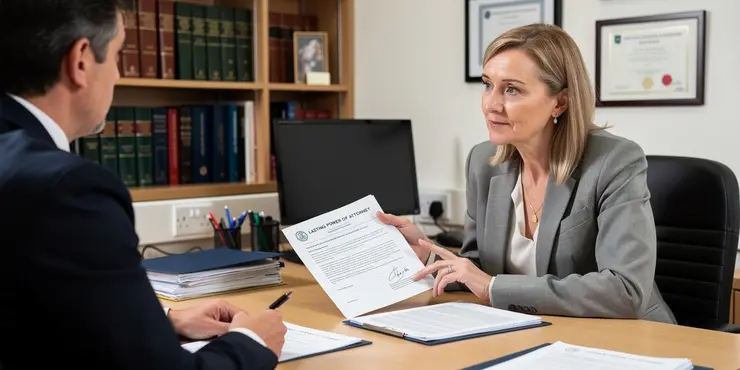
Find Help
More Items From Ergsy search
-
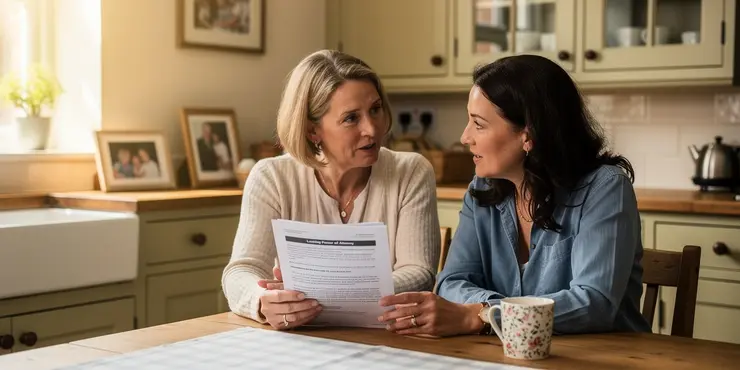
What is a Lasting Power of Attorney?
Relevance: 100%
-
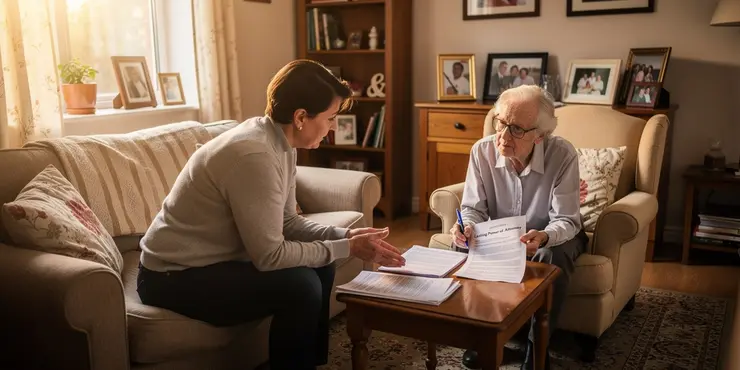
What is a lasting Power of Attorney?
Relevance: 97%
-
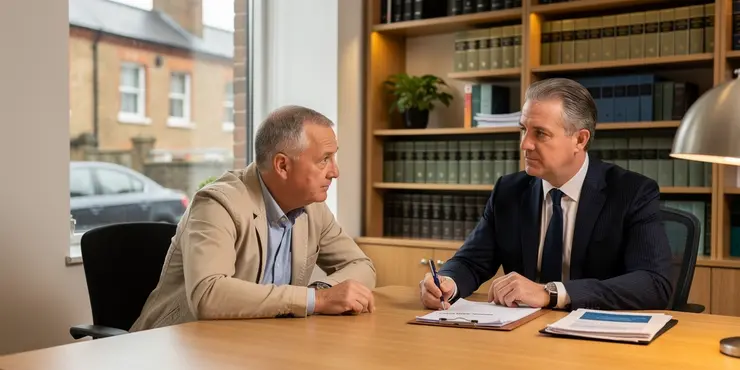
What are the types of Lasting Power of Attorney?
Relevance: 93%
-

Court of Protection and lasting power of attorney.
Relevance: 91%
-

Lasting Power of Attorney UK - A 2023 Guide
Relevance: 91%
-
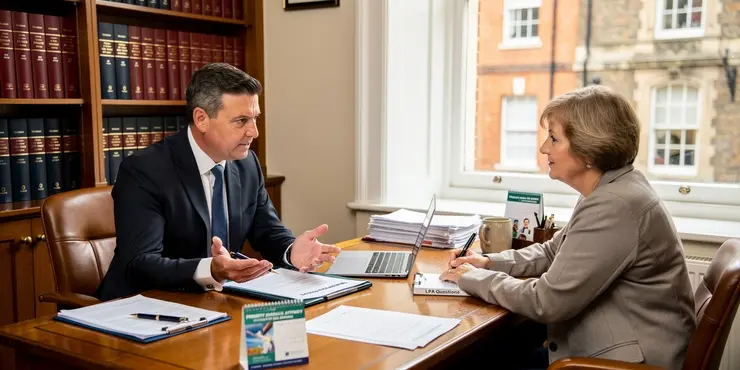
What are the types of Lasting Power of Attorney (LPA)?
Relevance: 91%
-
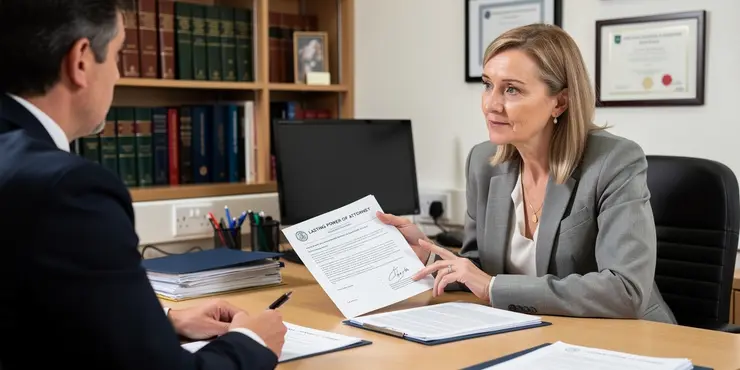
How to Set Up a Lasting Power of Attorney
Relevance: 88%
-
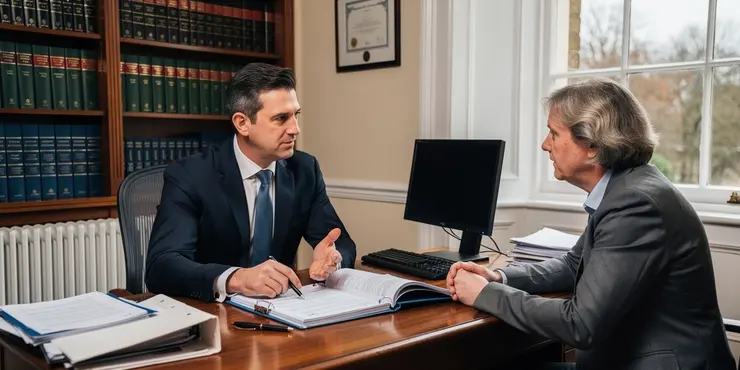
What is a Power of Attorney?
Relevance: 86%
-
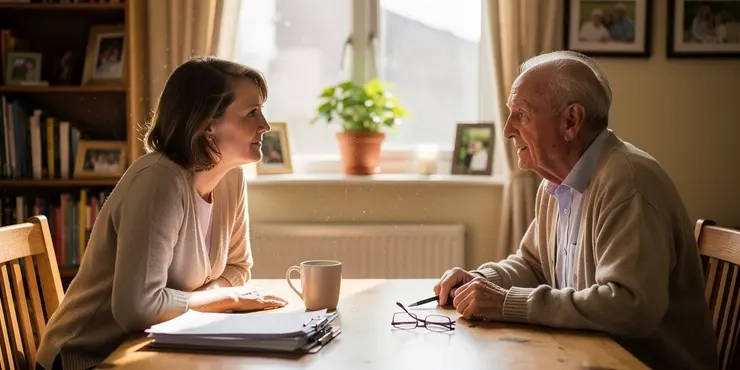
What Is A Power of Attorney
Relevance: 84%
-

How do I set up a Lasting Power of Attorney?
Relevance: 83%
-

Is a lawyer needed to set up a Lasting Power of Attorney (LPA)?
Relevance: 81%
-

Who can be appointed as an attorney under a Lasting Power of Attorney?
Relevance: 81%
-
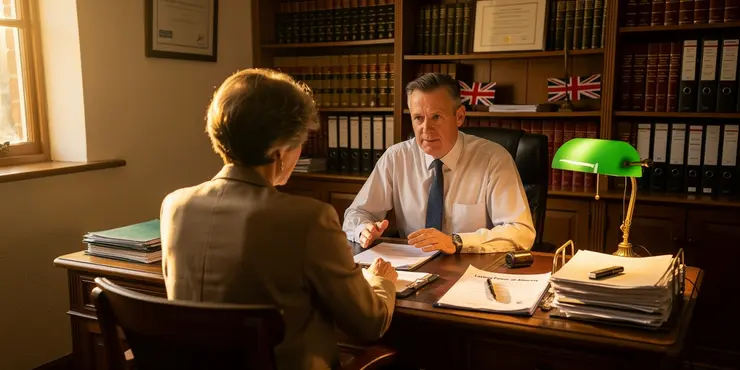
Why is an Lasting Power of Attorney (LPA) important?
Relevance: 81%
-

What is the role of the Office of the Public Guardian in regards to a Lasting Power of Attorney (LPA)?
Relevance: 77%
-
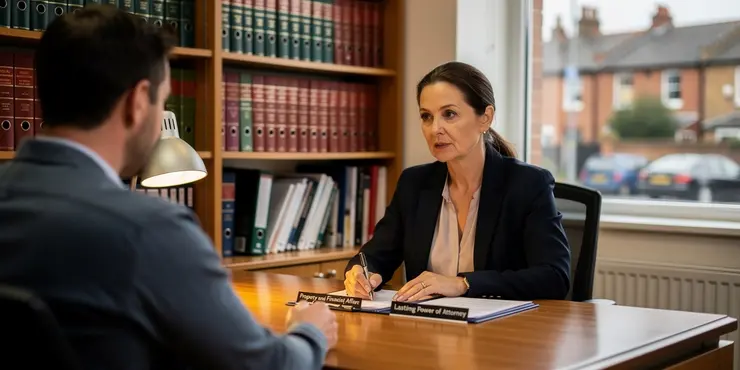
What decisions can an attorney make under a Property and Financial Affairs Lasting Power Attorney?
Relevance: 74%
-
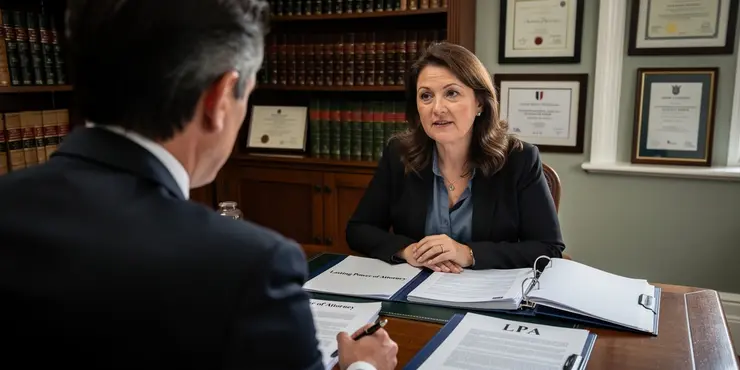
When does a Lasting Power of Attorney (LPA) come into effect?
Relevance: 73%
-

How do attorneys with Lasting Power of Attorney make decisions if there's more than one?
Relevance: 70%
-
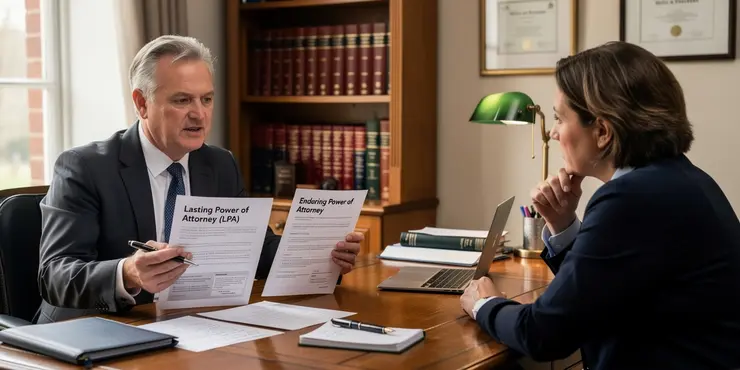
How does an LPA differ from an Enduring Power of Attorney?
Relevance: 67%
-

Are there costs involved in setting up an Lasting Power of Attorney (LPA)?
Relevance: 66%
-

What powers does an attorney have in a Health and Welfare LPA?
Relevance: 64%
-

What happens if the attorney with lasting power of attorney does not act in my best interests?
Relevance: 63%
-
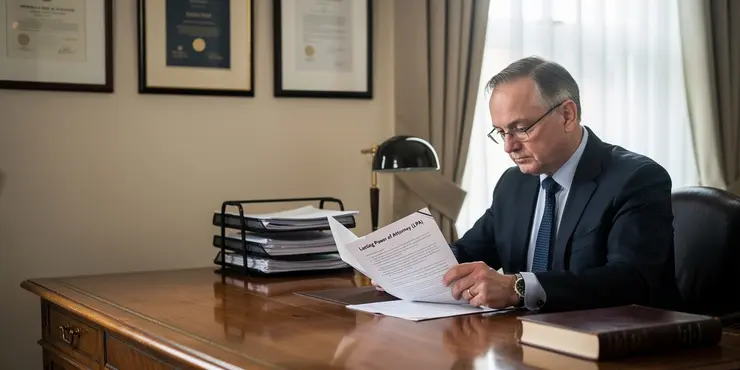
What are the restrictions on attorneys under an LPA?
Relevance: 52%
-

Can I have more than one attorney in an LPA?
Relevance: 50%
-
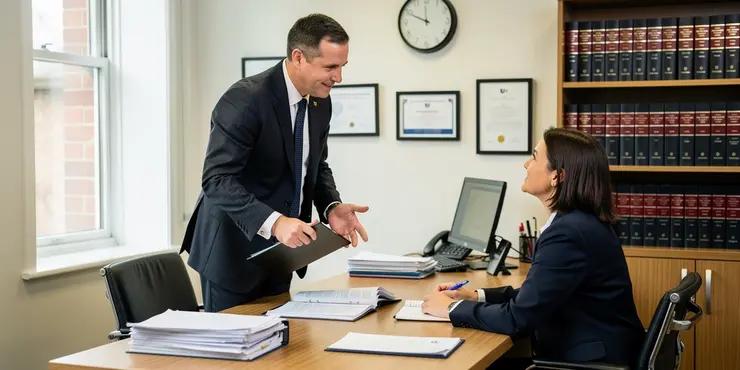
Can the Chief Law Officer for England and Wales overrule a court?
Relevance: 33%
-

Can the Chief Law Officer for England and Wales intervene in a legal case?
Relevance: 31%
-
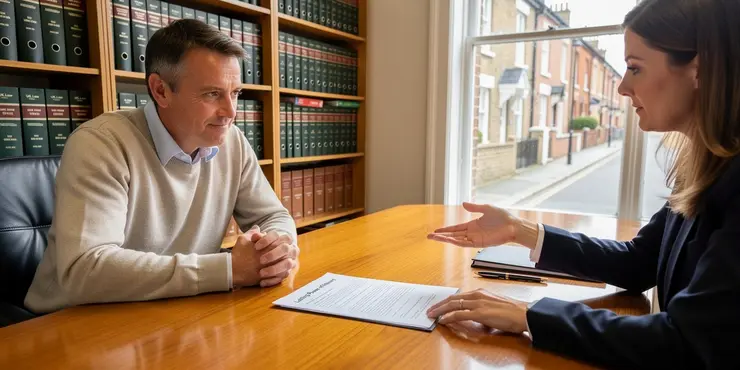
Can an LPA be used while I still have mental capacity?
Relevance: 31%
-

Can the Chief Law Officer for England and Wales make decisions on public prosecution matters?
Relevance: 31%
-
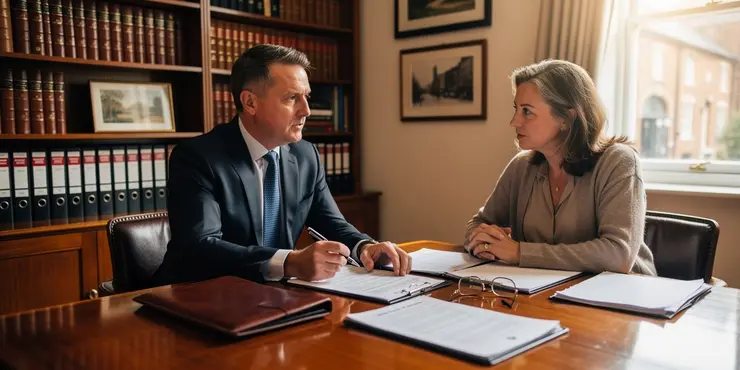
Is it necessary to have both types of LPAs?
Relevance: 31%
-
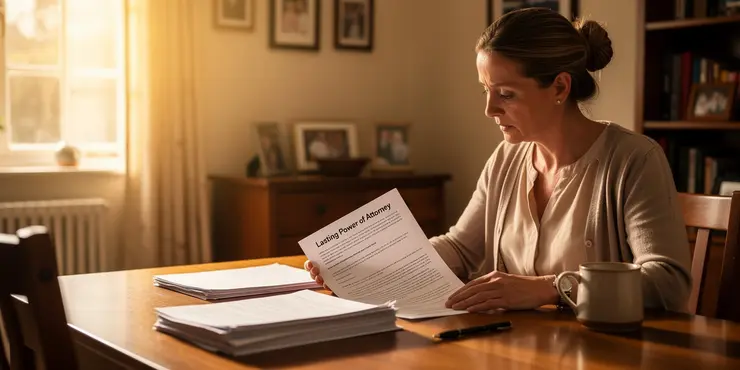
What legal resources are available for carers of Alzheimer's patients?
Relevance: 30%
-
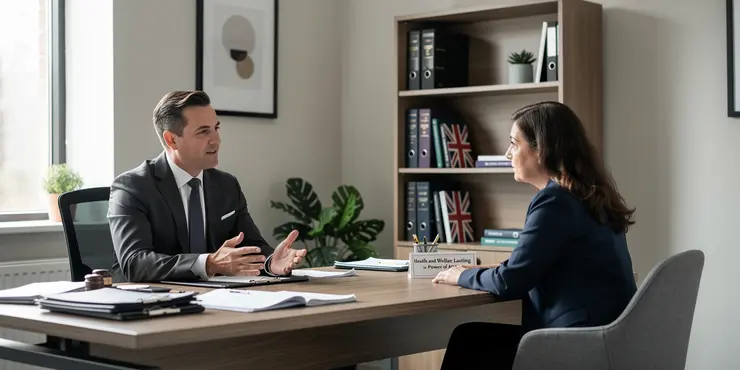
What powers does an attorney have in a Health and Welfare LPA?
Relevance: 29%
-
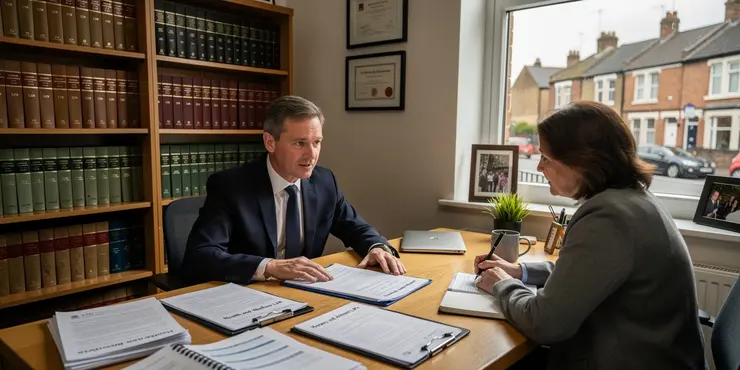
What powers does an attorney have in a Health and Welfare LPA?
Relevance: 29%
-
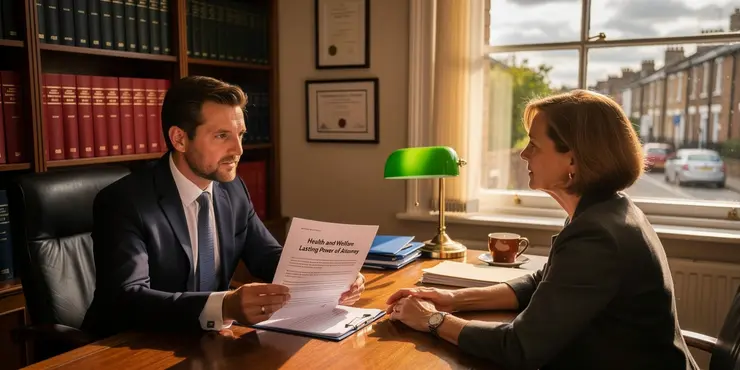
What powers does an attorney have in a Health and Welfare LPA?
Relevance: 29%
-

What powers does an attorney have in a Health and Welfare LPA?
Relevance: 29%
-

Can an LPA be changed or revoked?
Relevance: 28%
-
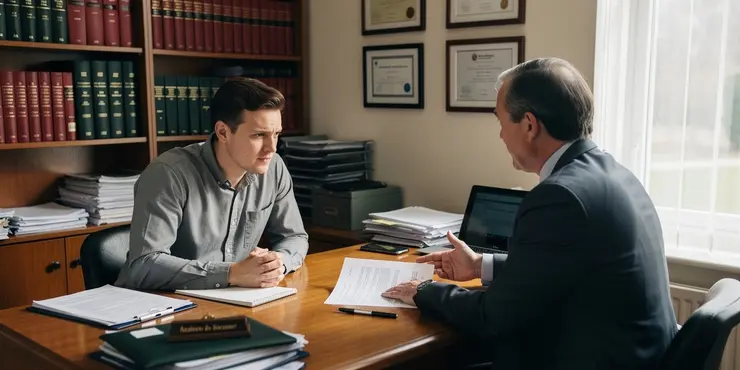
Is the position of the Chief Law Officer for England and Wales unique to the UK?
Relevance: 25%
-

How does the Chief Law Officer for England and Wales relate to the judiciary?
Relevance: 25%
-
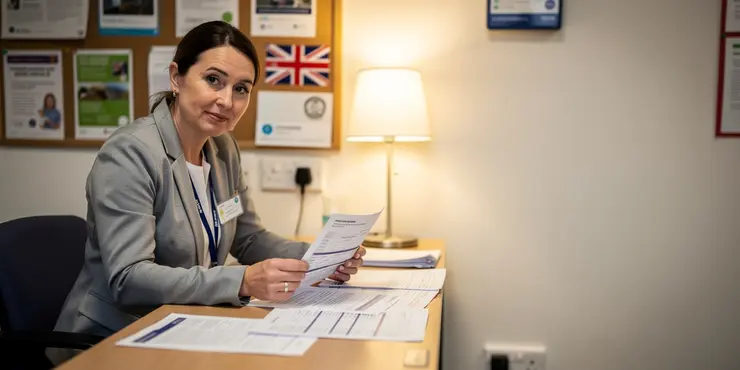
Can I apply for the payment for someone else?
Relevance: 25%
-

Does the Chief Law Officer for England and Wales in the UK handle prosecution cases?
Relevance: 24%
-

Can my attorney check my immigration status for me?
Relevance: 24%
-

How is the Chief Law Officer for England and Wales involved in the legislative process in the UK?
Relevance: 24%
How to Set Up a Lasting Power of Attorney
1. Understanding What a Lasting Power of Attorney Is
A Lasting Power of Attorney (LPA) is a legal document that lets you (the 'donor') appoint one or more people (known as 'attorneys') to help you make decisions or to make decisions on your behalf. This is often used when you no longer wish to or are unable to make decisions yourself. There are two types of LPA: one for health and welfare, and one for property and financial affairs.
2. Choosing Your Attorneys
Your attorneys should be trusted individuals who understand your wishes and will act in your best interests. You can choose friends, family members, or even professional attorneys such as solicitors. It is important to discuss your decision with them beforehand to ensure they are willing and able to take on this responsibility. You may also appoint replacement attorneys if your original choices can no longer act for you.
3. Filling Out the Necessary Forms
To set up an LPA, you need to fill out specific forms. For property and financial affairs, use form LPA PA. For health and welfare, use form LPA HW. These forms can be downloaded from the UK government's website. Carefully follow the instructions for each section, as mistakes can cause delays or invalidation of the LPA. You’ll need signatures from the attorneys, a ‘certificate provider’ who confirms you understand what you’re doing, and witnesses.
4. Registering Your LPA
Once the forms are completed, you need to register the LPA with the Office of the Public Guardian (OPG) before it can be used. Submit your forms and the registration fee to the OPG. You can do this by post or online. Registration can take up to 10 weeks, so it is advisable to register the LPA well before it is likely to be needed.
5. Notifying Relevant Parties
Once the LPA is registered, notify relevant parties such as your GP, bank, and any other institutions that may need to interact with your attorneys. It ensures that your wishes can be followed smoothly without administrative hiccups. Keeping multiple copies of the LPA forms in secure locations is also a smart practice for future reference.
6. Reviewing and Amending Your LPA
Your circumstances may change over time, and it's important to review your LPA periodically to ensure it still aligns with your wishes. If any updates are required, you may need to set up a new LPA and register it again. Ensure your attorneys are kept informed of any changes to avoid confusion or conflicts in the future.
How to Set Up a Lasting Power of Attorney
1. What Is a Lasting Power of Attorney?
A Lasting Power of Attorney (LPA) is a paper that lets you choose someone (an 'attorney') to help you make decisions or to decide for you if you can't. There are two kinds of LPA: one for health and care, and one for money and property.
2. Choosing Your Attorneys
Your attorneys should be people you trust. They need to know what you want and act in your best interest. They could be friends, family, or professionals like lawyers. Talk to them first to make sure they agree to help you. You can also choose backup attorneys in case the first ones can't do it later.
3. Filling Out the Forms
To make an LPA, you need to fill out forms. For money and property, use form LPA PA. For health and care, use form LPA HW. You can download these from the UK government website. Follow the instructions carefully to avoid mistakes. Mistakes can cause delays. You’ll need signatures from your attorneys, a ‘certificate provider’ who confirms you understand, and witnesses.
4. Registering Your LPA
After filling the forms, you must register the LPA with the Office of the Public Guardian (OPG) before it can be used. Send your forms and the fee to the OPG by post or online. It can take up to 10 weeks, so do this early.
5. Telling Important People
Once the LPA is registered, tell important people like your doctor, bank, and anyone else your attorneys might talk to. This helps make sure everything goes smoothly. Keep extra copies of the LPA in safe places for the future.
6. Checking and Changing Your LPA
Your life might change, so look at your LPA now and then to make sure it still fits what you want. If you need to change it, you might need a new LPA and must register it again. Keep your attorneys updated on any changes to avoid problems later.
Frequently Asked Questions
What is a Lasting Power of Attorney (LPA)?
A Lasting Power of Attorney (LPA) is a legal document that allows you to appoint someone to make decisions on your behalf if you lose mental capacity or if you no longer want to make decisions for yourself.
What are the different types of LPA?
There are two types of LPA: one for health and welfare and one for property and financial affairs. You can choose to set up one type or both.
Who can be an attorney?
An attorney can be anyone over the age of 18, including a relative, friend, spouse, partner, or a professional such as a solicitor.
Why should I set up an LPA?
Setting up an LPA ensures that your wishes are followed and that the person you trust is making decisions on your behalf if you are unable to do so.
How do I set up an LPA?
You need to fill in the LPA forms, which are available online or from the Office of the Public Guardian. Sign them in the presence of a witness, have your attorney(s) sign, and then register the LPA with the Office of the Public Guardian.
How much does it cost to register an LPA?
As of 2023, it costs £82 to register each type of LPA. There may be exemptions or reductions based on your financial circumstances.
What happens if I don’t set up an LPA?
If you don’t have an LPA and you lose mental capacity, a court will appoint a deputy to make decisions for you. This process can be lengthy and costly.
Can I cancel my LPA once it’s registered?
Yes, you can cancel your LPA at any time as long as you have the mental capacity to do so. You must inform the Office of the Public Guardian in writing.
Can my attorney make decisions immediately after the LPA is registered?
For a Property and Financial Affairs LPA, your attorney can act as soon as it's registered, unless you've specified otherwise. For a Health and Welfare LPA, your attorney can only act when you lack mental capacity.
Where can I find the LPA forms?
You can find the LPA forms on the UK government website or request them from the Office of the Public Guardian.
Do I need a solicitor to set up an LPA?
No, you do not need a solicitor to set up an LPA. However, you may wish to seek legal advice to ensure that the forms are filled out correctly.
How long does it take to register an LPA?
It usually takes between 8 to 10 weeks for the Office of the Public Guardian to register an LPA, provided there are no mistakes in the application.
Can I have more than one attorney?
Yes, you can appoint more than one attorney. You may also appoint replacement attorneys in case your original attorneys can no longer act on your behalf.
What is a certificate provider?
A certificate provider is an independent person who confirms that you understand the LPA and that you haven’t been put under any pressure to make it. This can be a professional such as your GP, or someone who has known you well for at least two years.
Can my attorney make decisions about life-sustaining treatment?
For a Health and Welfare LPA, you can choose whether or not your attorney has the power to make decisions about life-sustaining treatment.
What is a Lasting Power of Attorney (LPA)?
A Lasting Power of Attorney (LPA) is a paper that lets you pick someone to help you make choices if you can't. This person can help with things like your money or your health.
Here is how it works:
- You choose a trusted person to make choices for you. They are called an ‘attorney’.
- This paper lets them help with money or health decisions.
- It is useful if you are too ill or don't understand things as well.
You can ask a friendly adult to help you with this. They can explain things and fill out papers with you. You can also draw pictures to show who can help you and how.
A Lasting Power of Attorney (LPA) is an important paper. It lets you choose someone to help make choices for you. This is useful if you can't make choices because you're not feeling well or if you just don't want to make choices anymore.
What are the different types of LPA?
LPA stands for Lasting Power of Attorney. There are 2 kinds of LPA:
- Health and Care: This lets someone help you with decisions about your health, doctors, and where you live.
- Money and Property: This lets someone help you with your money, like paying bills or looking after your home.
You might need help from a friend or family member to understand this better. You can also use pictures or simple drawings to help you see what each type means.
There are two types of LPA. The first type is for health and welfare. The second type is for property and money. You can choose to set up one type or both types.
Who Can Be a Lawyer?
A lawyer is someone who helps people with legal problems. To be a lawyer, a person needs to:
- Go to college to study law.
- Pass a special test called the bar exam.
- Get a license to practice law.
If you need help reading, try these tips:
- Ask someone to read with you.
- Use audio books or reading apps.
- Break the text into small parts.
- Look up hard words in a dictionary.
A person who can help make decisions for you must be 18 years or older. This person can be a family member, friend, husband or wife, partner, or a professional like a lawyer.
Why is it good to have an LPA?
An LPA, or Lasting Power of Attorney, is a special form. It lets you choose someone you trust to help make decisions for you if you can't.
- An LPA helps make sure people know what you want.
- The person you choose can be a friend or family member who cares about you.
- They can help with things like money or health if you need it.
If you're not sure or need help, you can ask someone you trust or use tools like talking aloud or drawing pictures.
Setting up an LPA means someone you trust can make choices for you if you can't. This way, what you want still happens.
How do I make an LPA?
Would you like to make a Lasting Power of Attorney (LPA)? An LPA is a paper that lets someone help you make decisions if you can't. Here’s how you can do it:
1. Get the Forms: You need to get special forms to fill out. These can be found online or at a nearby office.
2. Choose Someone You Trust: Pick a person who you trust to help you. This could be a family member or a good friend.
3. Fill Out the Forms: Write your details and the name of the person you trust on the forms. There might be spaces to fill in about what you want.
4. Sign the Forms: You and the person you chose will need to sign the form. Sometimes, another person like a lawyer might have to sign it too.
5. Register the Forms: Send the forms to the right place to get them registered. This makes them official.
If you need help, ask a friend, family member, or a professional. You can also use tools like reading aids or apps to help understand the forms better.
You need to fill out some forms called LPA forms. You can find these forms on the internet or by asking the Office of the Public Guardian for them. Make sure you sign the forms with a person watching you. Your attorney(s) also need to sign. After that, you must send the forms to the Office of the Public Guardian to register them.
How much money do you need to pay to sign up for an LPA?
In 2023, it costs £82 to sign up for each type of LPA. You might pay less or nothing if you don't have much money.
What happens if I don’t make an LPA?
If you don't make an LPA, something might be harder later. An LPA is a paper that helps someone you trust to make choices for you if you can't. Here is what can happen:
- You might need someone to make choices for you if you get sick or are hurt.
- If you don't have an LPA, the people you love may not be able to help you right away.
- They might need to go to a special place, like a court, which can take a long time.
- This can be upsetting and costly for them.
It is a good idea to talk to someone who can help you with an LPA. They can explain it more. Also, tools that help can be things like:
- Pictures and drawings to show how it works.
- Videos to watch and learn more.
- Talk to a helper who can explain things to you.
Remember, making an LPA can make things easier for you and the people you love.
If you don't have a special legal paper called an LPA and you can't make decisions anymore, a judge will choose someone to decide for you. This can take a long time and cost a lot of money.
Can I stop my LPA after it's registered?
Yes, you can stop your LPA any time if you are able to make your own decisions. You need to tell the Office of the Public Guardian in a letter.
Can my lawyer make choices right after the LPA is ready?
For a Property and Money LPA, your helper can start as soon as the papers are ready, unless you say something different. For a Health and Care LPA, your helper can only start when you cannot make decisions on your own.
Where can I get the LPA forms?
LPA forms help you choose someone to make decisions for you. Here's how you can get them:
- Look on the official government website. They have the forms you need.
- Ask someone to help you find the forms online if you're having trouble.
- You can call a helpline for help. They can send you the forms.
Try using tools like a screen reader or ask a friend for help if you find reading hard.
You can get the LPA forms from the UK government website. You can also ask for them from the Office of the Public Guardian.
Do I need a lawyer to make an LPA?
Do you want to make a Lasting Power of Attorney (LPA)? You might think you need a lawyer, but you do not have to have one.
An LPA is a paper that lets someone help you make choices when you are older or if you are not well. You can fill out this paper by yourself or with help from an adult.
Here are some things that can help you:
- Ask an adult you trust to help you understand the paper.
- Use a guide that shows you each step to fill out the paper.
- If you have questions, you can ask someone who knows about LPAs.
Remember, you can do it with or without a lawyer.
No, you do not need a lawyer to set up an LPA. But, you might want to ask a lawyer for help to make sure you fill the forms out right.
How long does it take to register an LPA?
An LPA is a paper that lets someone help you make decisions. LPA means "Lasting Power of Attorney."
It can take a few weeks to make an LPA ready to use.
If you need help, ask a grown-up you trust or a friend.
Using pictures or apps can also help you understand better.
It takes about 8 to 10 weeks for the Office of the Public Guardian to register an LPA, as long as there are no mistakes in the application.
Can I have more than one helper?
Yes, you can choose more than one person to be your attorney. You can also pick backup attorneys if the first ones can’t help you anymore.
What is a certificate provider?
A certificate provider is a person who helps make sure a legal form is done correctly.
This person checks that the person signing the form can understand it. They also check that no one is telling them what to do.
If you need help with understanding, you can ask someone you trust to explain or use simple words.
A certificate provider is someone who checks that you know what the LPA means and that no one is forcing you to agree to it. This person can be a professional like your doctor, or someone who has known you really well for at least two years.
Can my lawyer choose if I get treatments to keep me alive?
You can choose if you want your helper to decide on your health and care in a Health and Welfare LPA. This includes if they can make choices about medical treatments that keep you alive.
Useful Links
This website offers general information and is not a substitute for professional advice.
Always seek guidance from qualified professionals.
If you have any medical concerns or need urgent help, contact a healthcare professional or emergency services immediately.
Some of this content was generated with AI assistance. We’ve done our best to keep it accurate, helpful, and human-friendly.
- Ergsy carfully checks the information in the videos we provide here.
- Videos shown by Youtube after a video has completed, have NOT been reviewed by ERGSY.
- To view, click the arrow in centre of video.
- Most of the videos you find here will have subtitles and/or closed captions available.
- You may need to turn these on, and choose your preferred language.
- Go to the video you'd like to watch.
- If closed captions (CC) are available, settings will be visible on the bottom right of the video player.
- To turn on Captions, click settings .
- To turn off Captions, click settings again.
More Items From Ergsy search
-

What is a Lasting Power of Attorney?
Relevance: 100%
-

What is a lasting Power of Attorney?
Relevance: 97%
-

What are the types of Lasting Power of Attorney?
Relevance: 93%
-

Court of Protection and lasting power of attorney.
Relevance: 91%
-

Lasting Power of Attorney UK - A 2023 Guide
Relevance: 91%
-

What are the types of Lasting Power of Attorney (LPA)?
Relevance: 91%
-

How to Set Up a Lasting Power of Attorney
Relevance: 88%
-

What is a Power of Attorney?
Relevance: 86%
-

What Is A Power of Attorney
Relevance: 84%
-

How do I set up a Lasting Power of Attorney?
Relevance: 83%
-

Is a lawyer needed to set up a Lasting Power of Attorney (LPA)?
Relevance: 81%
-

Who can be appointed as an attorney under a Lasting Power of Attorney?
Relevance: 81%
-

Why is an Lasting Power of Attorney (LPA) important?
Relevance: 81%
-

What is the role of the Office of the Public Guardian in regards to a Lasting Power of Attorney (LPA)?
Relevance: 77%
-

What decisions can an attorney make under a Property and Financial Affairs Lasting Power Attorney?
Relevance: 74%
-

When does a Lasting Power of Attorney (LPA) come into effect?
Relevance: 73%
-

How do attorneys with Lasting Power of Attorney make decisions if there's more than one?
Relevance: 70%
-

How does an LPA differ from an Enduring Power of Attorney?
Relevance: 67%
-

Are there costs involved in setting up an Lasting Power of Attorney (LPA)?
Relevance: 66%
-

What powers does an attorney have in a Health and Welfare LPA?
Relevance: 64%
-

What happens if the attorney with lasting power of attorney does not act in my best interests?
Relevance: 63%
-

What are the restrictions on attorneys under an LPA?
Relevance: 52%
-

Can I have more than one attorney in an LPA?
Relevance: 50%
-

Can the Chief Law Officer for England and Wales overrule a court?
Relevance: 33%
-

Can the Chief Law Officer for England and Wales intervene in a legal case?
Relevance: 31%
-

Can an LPA be used while I still have mental capacity?
Relevance: 31%
-

Can the Chief Law Officer for England and Wales make decisions on public prosecution matters?
Relevance: 31%
-

Is it necessary to have both types of LPAs?
Relevance: 31%
-

What legal resources are available for carers of Alzheimer's patients?
Relevance: 30%
-

What powers does an attorney have in a Health and Welfare LPA?
Relevance: 29%
-

What powers does an attorney have in a Health and Welfare LPA?
Relevance: 29%
-

What powers does an attorney have in a Health and Welfare LPA?
Relevance: 29%
-

What powers does an attorney have in a Health and Welfare LPA?
Relevance: 29%
-

Can an LPA be changed or revoked?
Relevance: 28%
-

Is the position of the Chief Law Officer for England and Wales unique to the UK?
Relevance: 25%
-

How does the Chief Law Officer for England and Wales relate to the judiciary?
Relevance: 25%
-

Can I apply for the payment for someone else?
Relevance: 25%
-

Does the Chief Law Officer for England and Wales in the UK handle prosecution cases?
Relevance: 24%
-

Can my attorney check my immigration status for me?
Relevance: 24%
-

How is the Chief Law Officer for England and Wales involved in the legislative process in the UK?
Relevance: 24%


